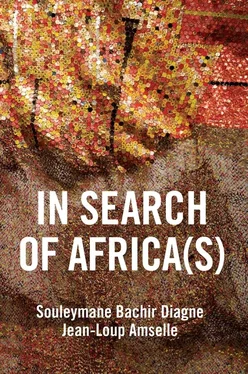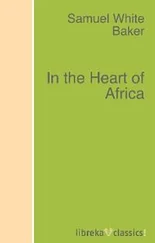This new intellectual configuration is essentially associated with such Latin American authors as Enrique Dussel, Aníbal Quijano and Ramón Grosfoguel. Like postcolonial writers, they reject Western pre-eminence, and especially Hegelian Marxism, which, through the concept of ‘dialectic’, aims to provide the history of the world with a pre-established, one-directional meaning. Dussel prefers the notion of ‘analectic’, that is, a form of knowledge or an absolute value as expressed, for example, in the Native American concept of ‘Pachamama’. Based on this concept, Grosfoguel shows that we must go beyond a critique of the misdeeds of multinational mining companies and ponder the initial rape of ‘Mother Earth’ that their exploitation of earth’s resources merely prolongs.
These new ‘decolonial’ ideas have found fertile ground in several French writers whose writings bring us back to the aforementioned question about Césaire’s dramatic resignation from the French Communist Party: does the decolonial question lead to prioritizing race over class? In particular, does the role played by the notion of ‘intersectionality’ obscure the class character of race and the social usage of postcoloniality? As the Haitian proverb reminds us: ‘Poor mulatto is Negro, rich Negro is mulatto.’
It will be clear that our dialogue and the contrasting positions it may set out on this or that point have highlighted the question of the universal that can be formulated in these terms: is the postcolonial the first phase of a new universal, one which would be truly universal (as it would be inclusive), or is it, on the contrary, the denial of all universalism, the triumph of the particular and of fragmentation?
This question is linked to that of human rights. In our discussion of these, our conversation highlights a difference of opinion over our assessment of the Kurukan Fuga and the Charter of the Mandé, the reconstructed texts of the oral tradition in which are listed the founding principles on which the Mali Empire, founded in the thirteenth century, was built.
One author, Ngũgĩ wa Thiong’o, believes that the decolonial approach presupposes that the intellectuals of the continent also express their search for Africa in its languages. ‘Every language,’ he writes, ‘however small, bears its memory of the world.’ 5What should we think of the demand to see African languages (maybe in a new light) as languages of creation and science? Are Ngũgĩ’s words and his approach based on a conception of different languages as monads closed off from each other? How are we to understand his assertion that, on the contrary, there is a language of languages and that this language is translation?
Our search for Africa(s) could not of course fail to accord a full and urgent place to the religious question as it arises today, in the Sahel among other places, in all its sound and fury. So we have looked in detail at the historical record and discussed the notion of a West African Islam, peaceful and open, as contrasted with a strict, purist Islam from the Arab North. Does this contrast point to an intellectual and spiritual tradition which, while not specific to West Africa, has nevertheless coloured the Islam of this region? Or is it a variant of colonial discourse and its construction of a ‘Black Islam’? These are the main questions that have been the focus of our discussions on this theme.
These discussions conclude by describing pan-Africanism and its current meaning. What does it mean, now, to re-embark on the pan-African project in an Africa which, despite the serious challenges it faces, has moved from being a ‘hopeless continent’ (the headline of an issue of The Economist devoted to Africa in 2000) to being a ‘hopeful continent’ (the headline of the same periodical in 2011 was ‘Africa Rising’)? Is this an essentialist repetition of the slogans of the past and the ritual invocation of a ‘United States of Africa’ as called for by previous authors such as Kwamé Nkrumah or Léopold Sédar Senghor? Is it a project paving the way to futures of which the history of pan-Africanism was the promise?
Our diverging conclusions on this issue mark the end of our discussions, built on the shared conviction that all endeavours to establish communication between the different components of our planet are beneficial, because they consist in cutting down the real or imaginary barriers that fragment our world. This, at least, was the underlying aim of our dialogue.
1 1. Edward Said, Orientalism (London: Penguin, 2003).
2 2. Valentin Y. Mudimbe, The Invention of Africa: Gnosis, Philosophy, and the Order of Knowledge (Bloomington: Indiana University Press, 1988).
3 3. Conseil pour le développement de la recherche en sciences sociales en Afrique (Council for the Development of Social Science Research in Africa).
4 4. Dipesh Chakrabarty, Provincializing Europe: Postcolonial Thought and Historical Difference (Princeton, NJ: Princeton University Press, 2000).
5 5. Ngũgĩ wa Thiong’o, Pour une Afrique libre (Paris: Philippe Rey, 2017), p. 84.
1 Universalism in questions
Jean-Loup Amselle
Universalism has been, and continues to be, rightly decried insofar as the conquest and colonization of Africa were carried out in the name of the eradication of ‘barbaric customs’ such as slavery, human sacrifice or female genital mutilation. 1What is described as ‘overarching universalism’ – a phrase that acts as a sort of frozen syntagm – and the corresponding imposition of the rights of man, or, as we say today, human rights, continue to be propagated in the form of campaigns against female genital mutilation, against homophobia and against the treatment meted out to women in the South. These campaigns are led by major international organizations and NGOs, and are taken up in Africa by the ‘secular’ fractions of the elites in each country; they have the disadvantage of arousing the determined opposition of a significant number of the population, who are in favour of maintaining female genital mutilation or are hostile to the emancipation of women and averse to homosexuality. It is also well known that in many cases the legal prohibition of female genital mutilation does not stop this practice from being performed.
Hostility towards any reform of what is supposed to be an immutable ‘tradition’ is also taken up and supported, in Mali, for example, by Muslim leaders of every tendency; they see it as a political marker for confronting the secular faction of the local bourgeoisie, which they describe as kowtowing to the West. So what is to some extent just a political issue between fractions of the ruling class is presented as a clash between Africa and the West, with the consequence of muddying the waters and fostering so-called ‘postcolonial’ positions. 2
This phenomenon became clear during Barack Obama’s visit to Dakar, Senegal, in 2013: while the American president was favourable to ‘coming out’ about one’s sexual orientations, whatever they were, the Senegalese president Malick Sall said homosexuality was not one of the ‘African traditions’ and that there was no question of decriminalizing it. 3The imposition from outside of a universalism of human rights in its different forms – whether it be ‘the gay international’, as Joseph Massad put it with regard to homosexuality, or ‘femonationalism’, to use the term put forward by Black feminists 4– caused and continues to cause collateral damage within Southern countries, since the obligation to ‘come out’ as encouraged by the West has the effect, in both cases, of penalizing working-class homosexuals and trapping women within an apparent patriarchal dictatorship.
The importance of this damage should be relativized and a proper emphasis placed on the ‘agency’ 5(the capacity of social actors to respond) of homosexuals in the South, especially in Muslim countries; and the same applies to women’s resistance to the injunctions of ‘White’ feminists from the North. Nonetheless, the fact remains that the imposition of a universalism of human rights is part of the aftermath of the colonial period 6and must, as such, be condemned – despite the ambiguities that ran through the Durban conferences in 2001 and 2009. 7
Читать дальше












